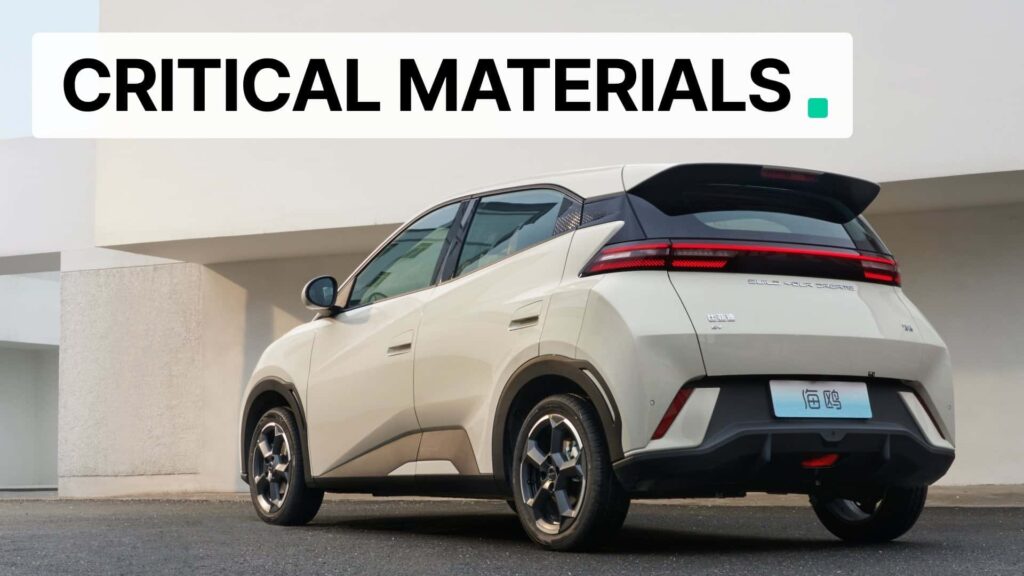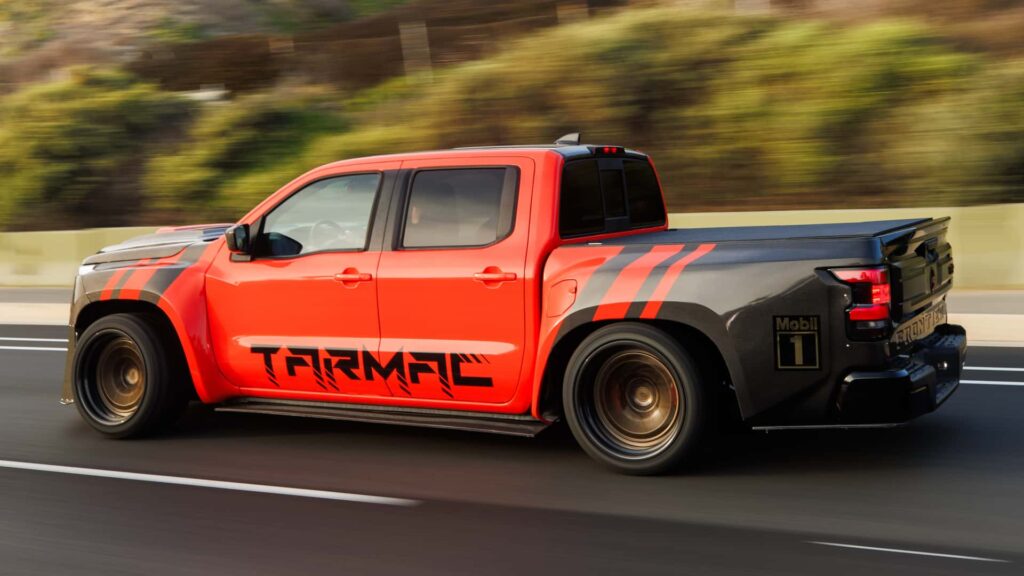
I’m gonna be honest with you, InsideEVs reader: I’m not anticipating a ton of news in our world this week. I could be wrong, of course—this happens on occasion—but it shouldn’t come as a surprise that everyone’s collective attention is largely elsewhere. And the U.S. presidential election may have profound implications for the future of the electric vehicle revolution here, although those are far from clear where we’re currently sitting.
In the meantime, now is a good time to take a close look at the rest of the world here on Critical Materials, our morning roundup of news in the mobility, electrification and tech spaces. On tap today: China’s automakers, BYD in particular, are crushing it right now; Toyota hits an important milestone with its electrified vehicles; and one analyst games out what this election could mean for Tesla in particular. Let’s dig in.
30%: BYD Has A Huge Month On Global Sales, Zeekr Way Up Too
Photo by: BYD
Now, I don’t want to be all “I told you so” because nobody likes that guy. But a few weeks ago, contributor Alysha Webb did a big story on how China’s automakers are making massive inroads in parts of the world that our America- and European-centric media doesn’t always cover, like Latin America and Southeast Asia. Lo and behold, China’s BYD—a rising juggernaut that’s been neck-and-neck with Tesla in global EV sales, and also sells hybrids to boot—posted another record month of sales in October.
Here’s Bloomberg to elaborate:
China’s No. 1 automaker, which makes only pure-electric and plug-in hybrid vehicles, sold 500,526 units in October, data released Friday show. Hybrid sales were the top performer last month with 310,912 deliveries. Some of BYD’s newer hybrid models’ upgraded powertrains now allow for more than 2,000 kilometers of range.
Shenzhen-based BYD notched up another milestone last month when it reported revenue for the third quarter that surpassed Tesla Inc.
BYD is also on track to meet its revised annual sales target of 4 million vehicles, having sold around 2.74 million vehicles through September. Citibank Inc. estimates BYD could sell as many as 500,000 units per month by November.
More importantly, as Nikkei Asia reports, BYD has doubled its overseas sales in the nine-month period from January to September, bolstered especially by big sales in Brazil and other parts of Asia. What did we tell you?
BYD certainly isn’t the only success story out of China. Zeekr, a Geely Group brand we’ve written about quite a bit this year (it’s another cousin to Volvo and Polestar, and in fact, is a bit like Polestar if it had a more expansive lineup and was seeing more sales wins) is also smashing records. CNBC reports Zeekr delivered 25,049 vehicles in October, and may in fact be on track to deliver 230,000 cars in 2024.
Elsewhere, Nio and Xpeng had great months too, picking up from what has previously been a more sluggish sales year in China overall. But all of those brands have designs well beyond China, and the rest of the world had better be paying attention.
60%: Half Of All Toyota And Lexus Vehicles Sold In October Were Electrified
Meanwhile, here in the U.S., the new car market is sluggish overall thanks to still-high interest rates. Some brands are doing better than others, and one thing is clear: when people buy a Toyota or a Lexus these days, they increasingly go hybrid (or electric.) Here’s Automotive News:
Toyota brand sales slipped 5.5 percent to 159,370 in October, dragged down by the recently ended stop sale of the Grand Highlander three-row crossover, as well as sharp declines from the 4Runner SUV and Highlander crossover. Lexus brand sales declined 2.3 percent to 26,559, weighed down by the stop sale of the TX three-row crossover.
Notably, the Japanese automaker’s electrified vehicle sales topped 50 percent of combined monthly sales at Toyota and Lexus for the first time in October.
Toyota’s going through a rough patch, as The Drive put it, when it comes to initial quality on its new generation of gas-powered vehicles. I don’t doubt the king of reliability will fix those problems soon, but I would remind them also that one way to avoid engine issues is to do away with the engine entirely. I still that if the bZ4X and Lexus RZ had stronger specs in a few key areas, they’d be absolute killers for those brands.
90%: What Is The Endgame For Tesla If Trump Wins?
Okay, you’ll get a little bit of election news after all in today’s Criticial Materials. Or rather, some analysis, because we’re still sorting out what could happen over the next few months and years depending on Tuesday’s vote.
But we know that Tesla CEO Elon Musk is, perhaps more than anyone else in America, aggressively pushing a win for former Presdient Donald Trump. He’s been campaigning, financing a (reportedly very troubled) ground game in Pennsylvania and using the social media platform X as the loudest megaphone possible to move the needle. So why side with a guy who has been, and still is, an ardent critic of electric vehicles?
Trump has vowed to repeal as many of the Biden administration policies driving EV manufacturing and sales in America. Yet one theory from pro-Tesla analyst Dan Ives indicates that could be the whole point—if all these new planned EV and battery plants lose a key source of incentives, that could in theory help Tesla keep its edge by cutting off the competition. Here’s Ives in Seeking Alpha, also noting the risks involved:
Wedbush Securities thinks a win by Donald Trump would be an overall negative for the electric vehicle industry, due to the likelihood that EV rebates/tax incentives get pulled. However, the Trump scenario for Tesla is more complicated.
Ives noted that Tesla has the scale and scope that is unmatched in the EV industry, which could give the Austin-based company a clear competitive advantage in a non-EV subsidy environment, coupled by likely higher China tariffs that would continue to push away cheaper Chinese EV players such as BYD and Nio from entering the U.S. market. Notably, Tesla could also benefit from an accelerated timeline for its autonomous and FSD initiatives.
On the negative side for Tesla, there could be implications over the next year with consumer demand if Trump and Musk are tied even closer together, per Ives. There is also a threat that an escalated trade and tariff war will hurt Tesla’s sales in China, or be an overhang on the stock.
But I think all of this goes deeper than just Tesla and EV sales. Musk clearly expects to have some kind of role in tearing down the regulatory apparatus that he sees as a barrier to space travel, artificial intelligence and anything else he wants to do. I also think that plan hinges on Musk and Trump keeping up a good relationship, and I am not convinced it will.
As for what Kamala Harris winning might mean for Musk, well… he thinks the Democratic Party is out to personally destroy him now. It’s all just been a bit much, lately.
100%: What Happens To Tesla And Musk After Nov. 5?
Photo by: InsideEVs
I do wonder how Musk, and Tesla, will be viewed by the public if he goes all-in for Trump and Trump still loses. And I’d be shocked if Tesla’s traditional base of eco-conscious EV buyers, who tend to lean more progressive politically, will just let all of this slide. Or maybe Musk’s huge bet on Trump will pay off if things go that way. Got any theories? Let us know in the comments.
Contact the author: patrick.george@insideevs.com


